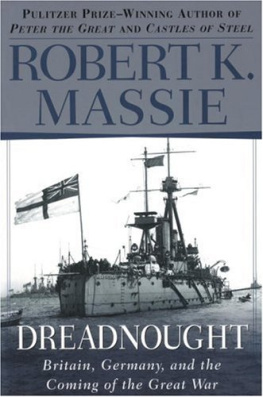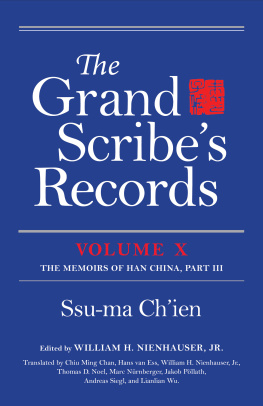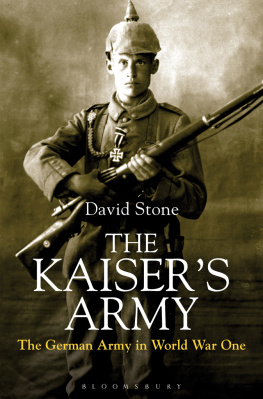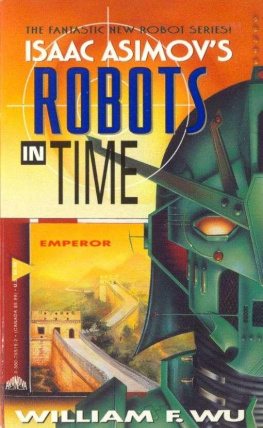CHAPTER I
Bismarck
Prince Bismarck's greatness as a statesman and his imperishable services to Prussia and Germany are historical facts of such tremendous significance that there is doubtless no man in existence, whatever his party affiliations, who would dare to place them in question. For this very reason alone it is stupid to accuse me of not having recognized the greatness of Prince Bismarck. The opposite is the truth. I revered and idolized him. Nor could it be otherwise. It should be borne in mind with what generation I grew upthe generation of the devotees of Bismarck. He was the creator of the German Empire, the paladin of my grandfather, and all of us considered him the greatest statesman of his day and were proud that he was a German. Bismarck was the idol in my temple, whom I worshiped.
But monarchs also are human beings of flesh and blood, hence they, too, are exposed to the influences emanating from the conduct of others; therefore, looking at the matter from a human point of view, one will understand how Prince Bismarck, by his fight against me, himself destroyed, with heavy blows, the idol of which I have spoken. But my reverence for Bismarck, the great statesman, remained unaltered.
While I was still Prince of Prussia I often thought to myself: "I hope that the great Chancellor will live for many years yet, since I should be safe if I could govern with him." But my reverence for the great statesman was not such as to make me take upon my own shoulders, when I became Emperor, political plans or actions of the Prince which I considered mistakes. Even the Congress of Berlin in 1878 was, to my way of thinking, a mistake, likewise the "Kulturkampf." Moreover, the constitution of the Empire was drawn up so as to fit in with Bismarck's extraordinary preponderance as a statesman; the big cuirassier boots did not fit every man.
Then came the labor-protective legislation. I most deeply deplored the dispute which grew out of this, but, at that time, it was necessary for me to take the road to compromise, which has generally been my road both on domestic and foreign politics. For this reason I could not wage the open warfare against the Social Democrats which the Prince desired. Nevertheless, this quarrel about political measures cannot lessen my admiration for the greatness of Bismarck as a statesman; he remains the creator of the German Empire, and surely no one man need have done more for his country than that.
Owing to the fact that the great matter of unifying the Empire was always before my eyes, I did not allow myself to be influenced by the agitations which were the commonplaces of those days. In like manner, the fact that Bismarck was called the majordomo of the Hohenzollerns could not shake my trust in the Prince, although he, perhaps, had thoughts of a political tradition for his family. As evidence of this, he felt unhappy, for instance, that his son Bill felt no interest in politics and wished to pass on his power to Herbert.
HIS GRANDFATHER'S SUCCESSOR
The tragic element for me, in the Bismarck case, lay in the fact that I became the successor of my grandfatherin other words, that I skipped one generation, to a certain extent. And that is a serious thing. In such a case one is forced to deal constantly with old deserving men, who live more in the past than in the present, and cannot grow into the future. When the grandson succeeds his grandfather and finds a revered but old statesman of the stature of Bismarck, it is not a piece of good luck for him, as one might suppose, and I, in fact, supposed. Bismarck himself points that out in the third volume of his memoirs (p. 40), when he speaks, in the chapter about Btticher, of the oldish caution of the Chancellor, and of the young Emperor.
And when Ballin had the Prince cast a glance over the new harbor of Hamburg, Bismarck himself felt that a new era had begun which he no longer thoroughly understood. On that occasion the Prince remarked, in astonishment, "Another world, a new world!"
This point of view also showed itself on the occasion of the visit of Admiral von Tirpitz at Friedrichsruh, at the time when he wished to win the old Imperial Chancellor over to favoring the first Navy bill.
As for me personally, I have the satisfaction of recalling that Bismarck intrusted to me in 1886 the very delicate Brest mission, and said of me: "Some day that man will be his own Chancellor." This shows that Bismarck must have had some belief in me.
I feel no grudge against him for the third volume of his reminiscences. I released this volume after I had sought and obtained my rights. To withhold the volume any longer would have been pointless, since the main contents had become known already through indiscretions; were this not true, there might have been varying opinions as to the advisability in the choice of the time for publication. Bismarck would turn over in his grave if he could know at what time the third volume appeared, and what consequences it had. I should be honestly grieved if the third volume had damaged the memory of the great Chancellor, because Bismarck is one of the heroic figures whom the German people need for their regeneration. My gratitude and reverence for the great Chancellor cannot be impaired or extinguished by the third volume nor by anything else whatever.
In the first half of the 'eighties I had been summoned to the Foreign Office at the behest of Prince Bismarck; it was then presided over by Count Herbert Bismarck. Upon reporting myself to the Prince he gave me a short sketch of the personages employed at the Foreign Office, and when he named Herr von Holstein, who was then one of the most prominent collaborators of the Prince, it seemed to me that a slight warning against this man ran through the Prince's words.
I got a room all to myself, and all the documents concerning the preliminary history, origin, and conclusion of the alliance with Austria (Andrassy) were laid before me in order that I might study them. I went often to the home of the Prince and to that of Count Herbert.








